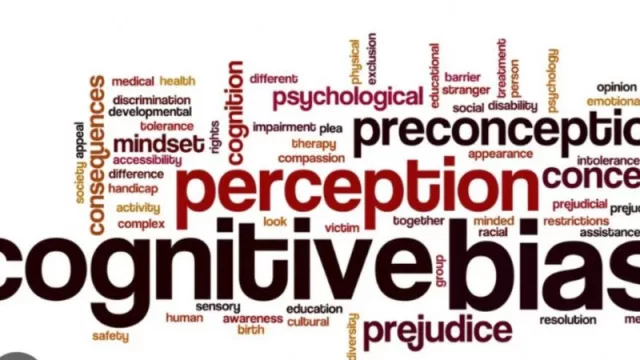Recognizing their existence and understanding their impact is essential for any organization aspiring to be inclusive, innovative, and competitive. By implementing strategies that minimize these biases, companies not only enhance their operational efficiency but also build a more robust and resilient culture, capable of tackling future challenges. In a world where adaptability is key, organizations that proactively address cognitive biases will be one step ahead.
The Pursuit of Objectivity in Human Resources
HR teams are implementing objective frameworks to reduce the effects of bias during the selection process. This involves not only creating more inclusive job descriptions but also utilizing assessment tools that minimize subjectivity. Diversity in hiring enriches organizational culture and enhances innovation and problem-solving capabilities, as diverse teams bring a wide range of perspectives and experiences.
Organizational Culture and Decision-Making
Corporate culture plays a fundamental role in how biases are managed and perceived. Fostering an environment where honest feedback and open discussion are valued can help mitigate biases that may arise in decision-making. Organizations that promote awareness of cognitive biases and implement strategies to counteract them are better positioned to adapt to a constantly changing business environment.
Overcoming Perspectives in Product Design
Product designers are increasingly aware of how their own perspectives influence solution development. To combat this bias, they turn to focus groups that reflect the diversity of their target market. These groups provide valuable feedback that can challenge initial visions and guide design toward a more user-centered approach. This process not only enhances customer experience but also increases the likelihood of success when launching new products.
Marketing and Consumer Psychology
In the realm of marketing, specialists are leveraging cognitive biases to create content that resonates with customers. For instance, the anchoring bias is utilized when setting price labels that lead consumers to perceive greater value in certain products. Similarly, the Zeigarnik effect is harnessed in emails reminding customers about items left in their shopping carts, thereby encouraging purchase completion. These approaches not only improve conversion rates but also demonstrate how companies can use psychology to influence consumer behavior.
Cognitive biases are powerful phenomena that affect our decisions on multiple levels.
-
Traditionalist or Status Quo Bias: This bias refers to the resistance to change and the preference for maintaining practices and strategies that have worked in the past, even when the context has shifted.
-
Fear of Risk Bias: Managers may fear taking risks, leading to conservative decisions that limit innovation and adaptability.
-
Local, National, or Regional Bias: This bias occurs when decisions are based on local information or past experiences, often neglecting global trends or broader data.
-
Investment Bias: Some leaders hesitate to make significant investments, particularly in unproven technologies or innovations, resulting in a lack of competitiveness.
-
Market Myopia or Vertical Vision Bias: Coined by Theodore Levitt, this term describes the tendency of companies to focus on their current products and services, overlooking the changing needs of consumers and the competitive landscape.
Modern Terms and Concepts Countering Bias and Self-Deception
-
Business Agility: The ability of a company to quickly adapt to market changes. This concept is gaining relevance due to the rapid pace of technological and consumer shifts.
-
Digital Transformation: Companies that fail to adopt digital technologies may fall behind. This concept relates to investment bias, where a lack of investment in technology can stifle growth.
-
Attention Economy: In the digital age, capturing consumer attention is crucial. This has led to a more customer-centric approach focused on user experience. Attention is not just about being noticed; it fundamentally involves paying attention to details, going above and beyond, listening, and improving.
-
Culture of Innovation: Fostering an environment that allows for experimentation and tolerance for failure is essential to counteract biases like fear of risk. Understanding that new visions cannot be “rationalized” through outdated presentation, measurement, or display methods is key.
-
Lean Mindset: The "lean startup" philosophy promotes rapid prototyping and market validation of ideas, helping to overcome market myopia.
-
Crossing: Nothing is purely rational, nothing is strictly vertical or specialized. The concept of crossing is about recognizing that we live in a complex era where everything is intricately interconnected and mutually reinforcing. A qualitative insight can influence the interpretation of a quantitative metric. The world is increasingly tech-driven but also more holistic. It’s more digital, yet also more tangible; it’s more contemporary, but equally rooted in tradition and spirituality. Recognizing that everything is crossing—interconnected and interrelated—is essential.
IG: @infonegociosmiami
-
Phydigital: Anyone aiming to develop technology solely for the sake of technology is missing the mark. The primary purpose of technology should be to enhance and support real-life experiences. This is true across branding, events, communication, as well as in services and products—particularly in realms like AI, the internet, social media, and applications.
Key Researchers and Authors
-
Daniel Kahneman and Amos Tversky: Their groundbreaking work on judgment and decision-making psychology has been instrumental in understanding cognitive biases in business.
-
Clayton Christensen: His theory on disruptive innovation addresses how companies can fall prey to market myopia.
-
Jim Collins: In his book "Good to Great," he delves into how organizations can transcend biases and achieve optimal performance.
-
Rita McGrath: With her focus on innovation and adaptability, she has articulated how businesses can remain relevant in an ever-evolving landscape.
Understanding these biases and their effects on decision-making is critical for companies to adapt and thrive in a dynamic environment. Embracing an open mindset, fostering innovation, and leveraging digital transformation are crucial steps to overcoming these challenges.
-
Subscribe for free to receive the most strategic, agile, and valuable insights at: https://infonegocios.miami/suscribite-al-newsletter
Infonegocios NETWORK: 4.5 million Anglo-Latinos united by a passion for business.
Subscribe for free to receive the most strategic, agile, and valuable insights at: https://infonegocios.miami/suscribite-al-newsletter
Contact Infonegocios MIAMI:
[email protected] or [email protected]












Tu opinión enriquece este artículo: